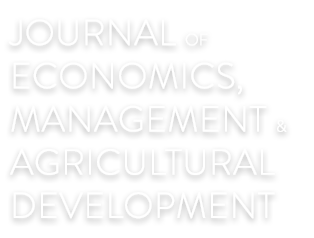Authors
ABSTRACT
Standard economic theory assumes that individuals make decisions that are
consistent across different choice situations. Behavioral economics challenges the standard economic theory account of individual behavior. This budding field suggests that consumer preference for one option over another changes as a result of adding another option. This study aims to determine the effect of a decoy option on consumer preference for USB flash drives. A quasi-experiment was conducted among 100 UPLB students wherein each respondent was initially asked to choose between two kinds of flash drive. The researcher then adds a decoy option to test if the respondent will change his initial preference. To investigate whether a decoy option causes preference reversal, Independence of Irrelevant Alternatives was verified through Hausman specification test. Results show that the introduction of a decoy option results in inconsistencies in the choice of several respondents. This implies that the standard economic theory account of individual behavior may not always hold given that consumer’s preferences are based on what is on offer rather than on absolute preferences.

